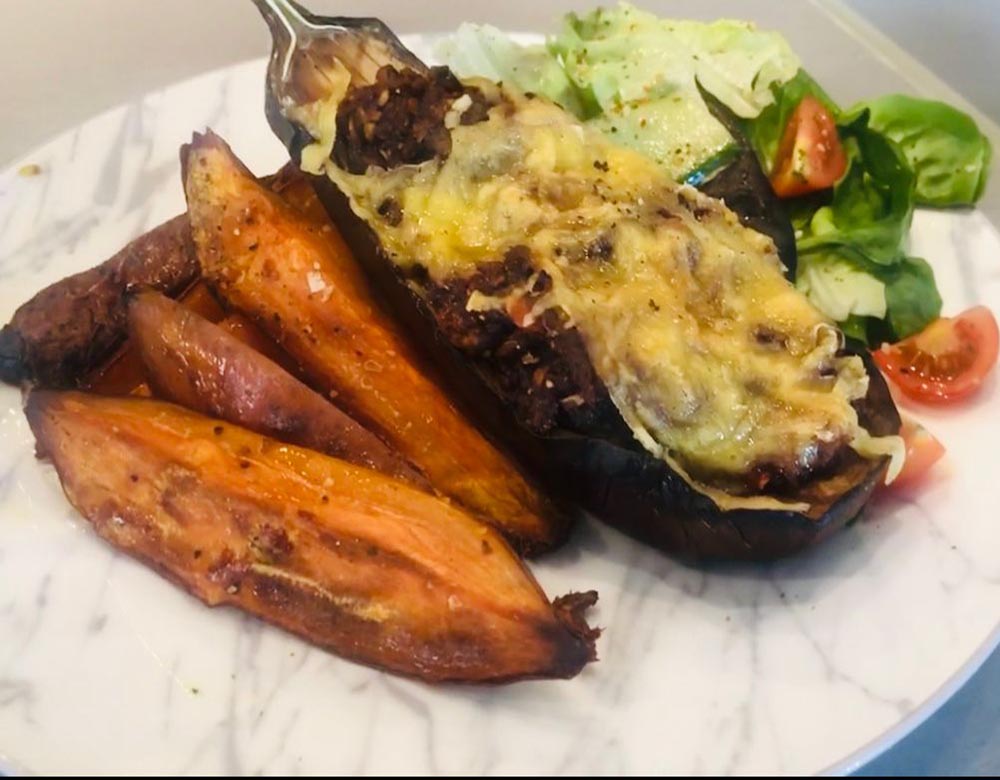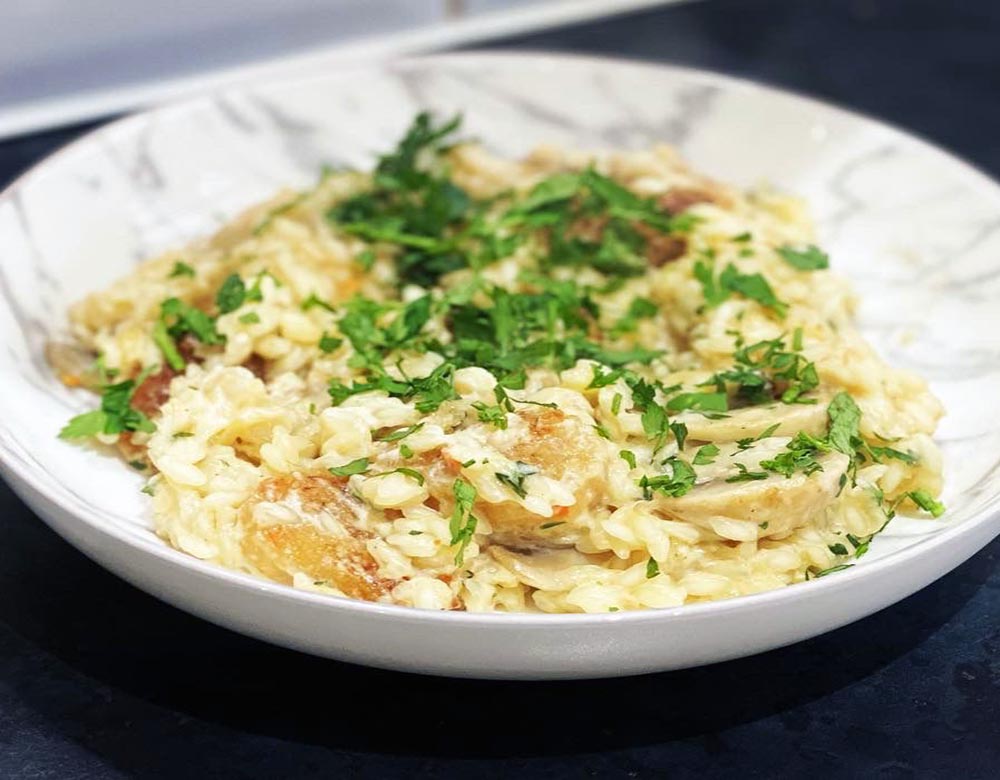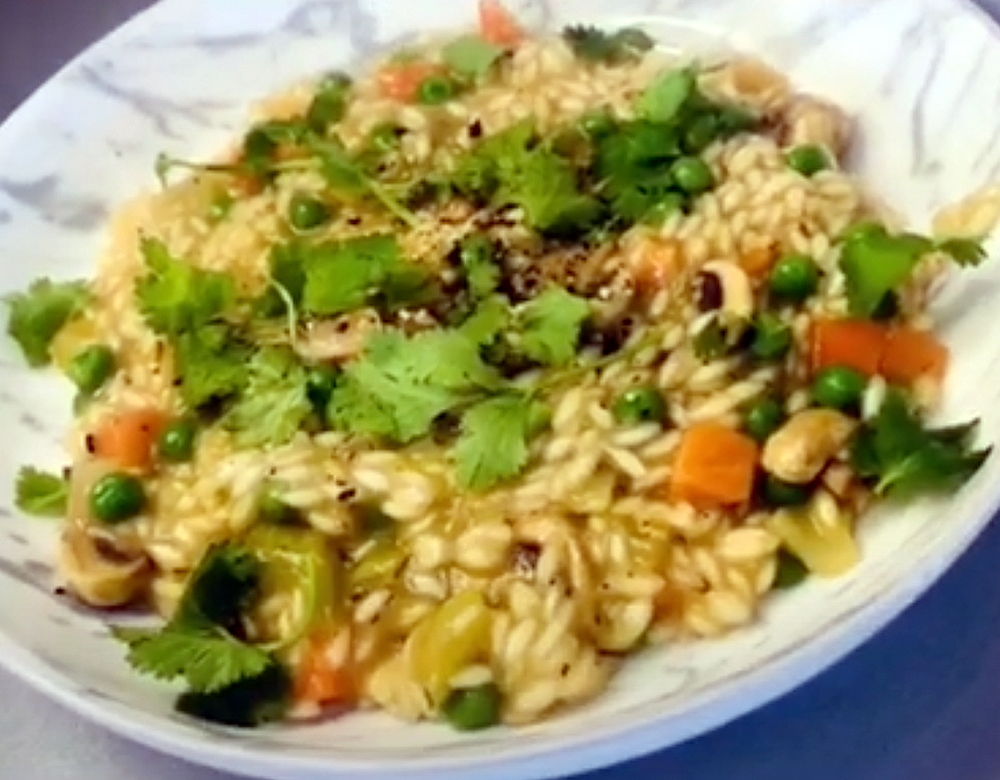Low Protein Loaded Moroccan Aubergine Recipe

Ingredients
- 1 aubergine
- 100g diced carrot, onion and celery
- Cooking oil
- Salt and pepper
- 1 teaspoon Garlic Purée
- 1 teaspoon Tomato purée
- 1 packet of Promin Burger mix
- 1 beef stock cube
- 200ml of water
- 2 dessert spoon of Moroccan Seasoning
- 50g violife cheese
How To Make Low Protein Loaded Moroccan Aubergine
- Half the Aubergine and scoop out the middle, to be used in the filling.
- Drizzle oil and season the aubergines with salt and pepper and bake for 30 minutes at 200 degrees
- Dice the contents of the inner aubergine and add to a pan along with the 100g of diced vegetables and add a drizzle of oil
- Cook on a high heat until the vegetables begin to sweat, the add your tomato purée and garlic purée
- Add 100 ml of stock to soften the vegetables and begin to stir in 1 packet of promin burger mix
- Add the Moroccan spice when the mixture starts to resemble a chilli consistency and pour in the rest of the stock
- Remove the aubergines from the oven and spoon the mixture in.
- Top with violife cheese and bake for a further 15 minutes at 200 degrees
Sweet Potato Garlic Wedges
- Cut the sweet potato into wedge shapes and place in a pan of water and bring to the boil
- Once drained, layer the wedges on a baking tray and season with a blend of salt, pepper, garlic granules and any other desired herbs, then drizzle with oil
- Roast in the oven for 40 minutes at 200 degrees, turning them occasionally.
RELATED STORIES
-

Low Protein Chicken and Mushroom Risotto Recipe
Ingredients How To Make Chicken and Mushroom Risotto Preheat the Oven to 200 degrees/ Gas Mark 5 Vegetable and Tomato Sauce Cheese Sauce Layering…
-

Low Protein Vegetable Lasagne Recipe
Ingredients How To Make Low Protein Vegetable Lasagne
-

Low Protein Spring Vegetable Risotto Recipe
Ingredients How To Make Low Protein Spring Vegetable Risotto
